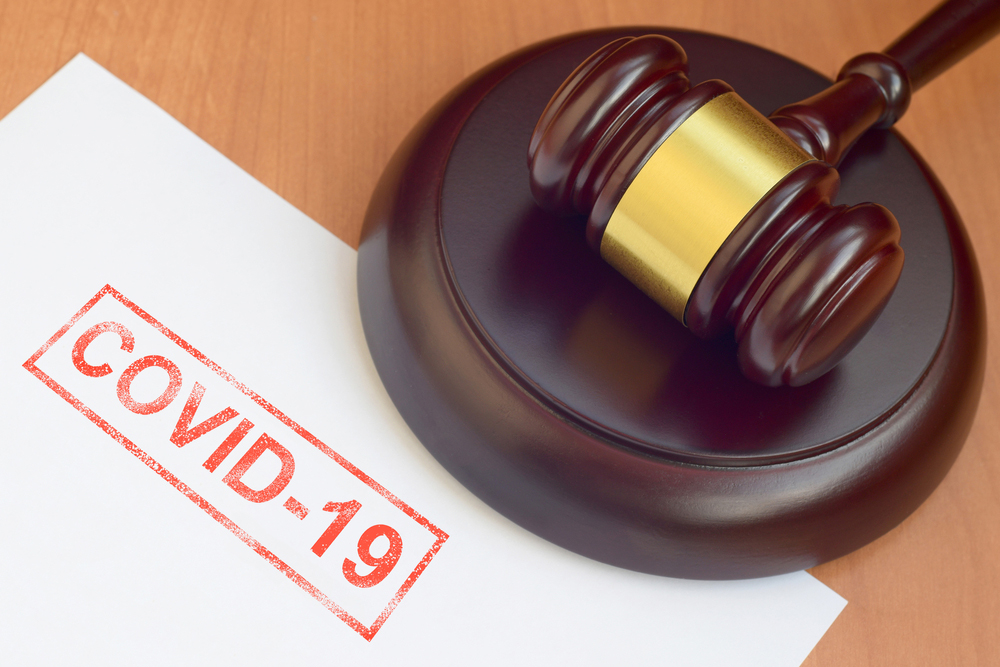An Ohio employee sued after being terminated for self-quarantining because of COVID-19. Although her lawsuit is pending in the U.S. District Court for the Northern District of Ohio, federal laws do require most employers to provide coronavirus-related leave.

Facts
Kelley Nuttall worked as an activity director at an Ohio rehabilitation and care facility. After being exposed to a patient with a COVID-19 infection, Nuttall was diagnosed with the coronavirus.
Although Nuttall asked for leave under the Family and Medical Leave Act (FMLA), her request was ignored, and her employment was terminated. Her executive director texted: “I understand that some leaders are going to step up and some leaders are going to step back. Wish you well.”
Employer Obligations
In addition to the FMLA, the Emergency Paid Sick Leave Act (EPSLA) and the Emergency Family and Medical Leave Expansion Act (EFMLEA) require most employers to provide COVID-related leave to their employees.
EPSLA. The EPSLA took effect on April 2 and expires on December 31, 2020. It applies to public agencies and private employers with fewer than 500 employees. It covers employees regardless of the length of their employment, although employers can exempt healthcare providers or emergency responders. Covered employers must provide paid sick leave to employees who cannot work (or telework) because they:
- Have COVID-19 symptoms and are seeking a medical diagnosis;
- Are advised by a healthcare provider to self-quarantine because of COVID-19 or are caring for an individual who has been so advised;
- Are subject to a government-issued COVID-19 quarantine or isolation order or are caring for an individual subject to such an order; or
- Are caring for their child whose school or daycare center is closed or whose care provider is unavailable because of coronavirus precautions.
Full-time employees may take up to 80 hours of paid sick leave. Part-time employees are entitled to the number of hours they work, on average, over a 2-week period. Special rules apply to workers with varied schedules.
EPSLA leave is based on the greater of the employee’s regular rate of pay or the minimum wage. Employees who must care for themselves are entitled to full pay, up to $511 per day and $5,110 total. Employees who must care for another are entitled to two-thirds of their pay, up to $200 per day and $2,000 total.
Employees cannot be required to use other sources of paid leave, such as accrued personal or vacation leave, before receiving EPSLA leave. Employees also can’t be required to find a replacement worker to cover their hours or shifts as a condition of receiving the leave.
It’s unlawful for an employer to discharge, discipline, or in any other manner discriminate against an employee who takes EPSLA leave or files a complaint under the Act. Employers that violate the law will be considered to have failed to pay minimum wages under the Fair Labor Standards Act (FLSA) and be subject to FLSA penalties.
EFMLEA. The EFMLEA also took effect on April 2 and expires on December 31, 2020. It applies to employers with fewer than 500 employees. It covers employees who have worked at least 30 calendar days, although employers can exempt healthcare providers or emergency responders.
The EFMLEA entitles employees to take up to 12 weeks of leave if they can’t work (or telework) because they’re caring for their child whose school or daycare center is closed or whose care provider is unavailable because of a government-declared public health emergency.
The first 10 days of EFMLEA leave may be unpaid unless the employee elects to use accrued vacation leave, personal leave, or medical or sick leave. After that, the employer must provide paid leave based on normally scheduled hours and a two-thirds rate of pay, up to a daily maximum of $200 and a total of $10,000.
Employees who take EFMLEA leave are entitled to have their health coverage maintained while on leave. They’re also entitled to resume their previous job or be given an equivalent position upon returning from leave unless several conditions are met.
The EFMLEA requires employers to post a notice of employees’ rights under the Act.
Takeaways
When employees request coronavirus-related leave, you should carefully consider and comply with your leave-related obligations under the FMLA, the EPSLA, and the EFMLEA.
Caroline H. Gentry is a partner with Porter Wright Morris & Arthur LLP in Dayton, Ohio. You can reach her at cgentry@porterwright.com.
